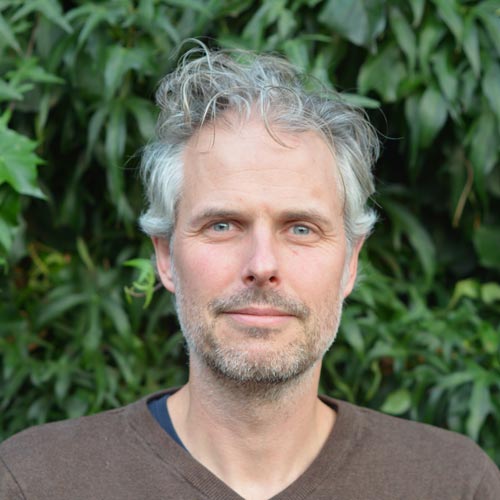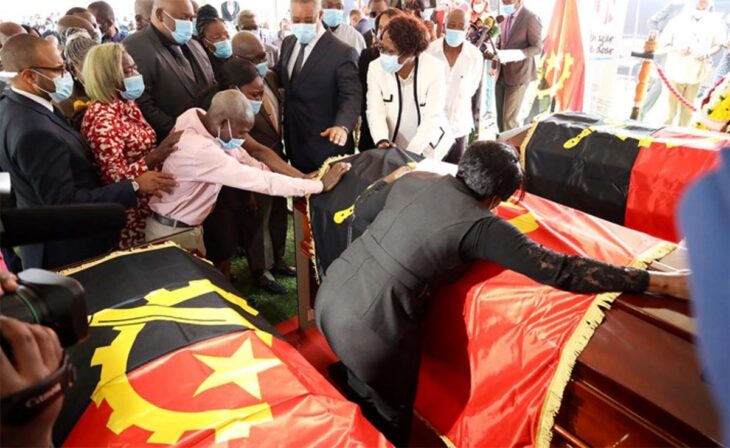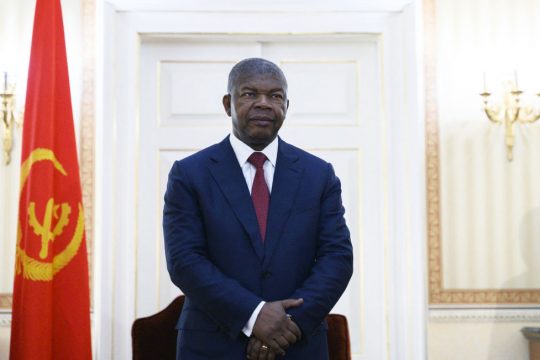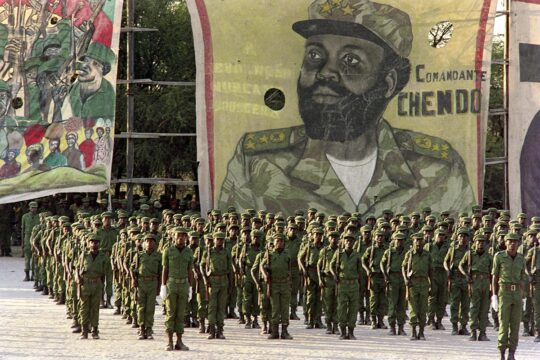Angola's transitional justice process has suffered a major blow. On 22 March, a group of relatives of civil war victims, known as the 27 of May orphans, announced that the samples of bone matter they had received from the Angolan authorities as probably belonging to their parents, turned out not to be related to them at all. In an open letter to the Angolan people, the orphans describe the returning of the wrong mortal remains as an "exercise in cruelty", "in which feelings of loss, pain and sorrow were unnecessarily aroused, with goals that have nothing noble".
The return of the remains was part of the work of the government-established reconciliation commission that has been operating in Angola since 2019. We previously wrote about its work in contributions in 2020 and 2021. Although the commission has the staggeringly extensive mandate to reconcile Angolans in the face of all political conflicts that occurred during Angola’s 27-year civil war, the events of 27 May 1977 and their aftermath have so far been dominating its agenda. On that day, an alleged coup d'état attempt occurred within the ruling MPLA party, to which the state responded with excessive and prolonged violence. In the following years, thousands were killed as a result of government violence. The subject of ‘27 de maio’ has for long been a taboo that, until recently, has hardly been publicly discussed in Angola.
Public apology and restitution of bodily remains
On 26 May 2021, Angola took an important step in breaking the silence. On that day, Angola's president Joao Lourenco apologized on behalf of the Angolan state for the mass executions and asked for forgiveness. During his speech the president also announced that everything possible would be done to locate and identify the remains of the largest possible number of victims to allow for dignified funeral ceremonies, whilst naming twelve prominent victims in particular. In March 2022 the president’s commitment seemingly delivered the first concrete results when Angola's Minister of Justice and chair of the reconciliation commission, Francisco Queiroz, announced that the remains of most of the named victims were possibly found in a mass grave. DNA matter of next of kin still needed to be collected in order to establish the identities of the remains and the identities of four of the bodies were subsequently confirmed.
On 13 June 2022, in the run-up to the presidential elections, the remains of the four identified victims were returned to their families in an emotionally charged public ceremony in Luanda. During the gathering several speakers, both government representatives and relatives of the victims, spoke conciliatory and praising words. Queiroz stated during the ceremony that the DNA identification documentation was "verifiable" and "available for international review". However, the DNA matching process was done by the Angolan authorities without the involvement of international forensic experts.
None of the samples showed a DNA match
Months later, relatives of some of the other named victims were also offered the return of their family member’s remains. This group of relatives, often orphans living outside of Angola, called for a more rigorous process of identification based on international standards and led by internationally acknowledged forensic experts. The Angolan government agreed to this request after which, based on an intergovernmental agreement, the Portuguese government assisted in assembling an investigation team of Portuguese experts, which visited Angola in July 2022 in order to take samples. To the shock of the victims’ relatives none of the samples showed a DNA match with the supposed relatives. As one of the experts put it “we are sure that the bodies do not belong to those who were expected. This is a scientific certainty."
The Angolan government has so far not officially responded to the experts’ conclusions. But this outcome raises the question whether the identity of the first four prominent victims whose remains have already been reburied by their family members has been correctly established. And meanwhile, other families who are awaiting the results of the government’s DNA analyses for their relatives have expressed their loss of trust in the outcome.
An arduous reconciliation process
For some, the fact that the reconciliation commission's has been involved in returning of the wrong bone matter reinforces the image of an incomplete, messy, untransparent and insufficiently independent and impartial reconciliation process in Angola. Not only has confidence in the determination of DNA results by the Angolan government fallen to zero. In addition, there are a number of other structural issues with the commission’s approach: the strong focus on the May 27 issue at the detriment of other political conflicts, the lack of clarity about the meaning of the 'political conflict' concept itself, and the commission’s one-sided composition (dominated by government representatives), to name the most important ones.
In July 2021, dissatisfaction with, among other things, the one-sided composition of the commission, its lack of focus on establishing ‘historical truth’ and its broad conception of victimhood, already led to the suspension of all cooperation with the commission by an important group of May 27 victims. In a previous contribution, we described the general problem that the commission's exclusive focus on 'political conflicts' seems to place many international crimes committed during the military conflict a priori outside of its competence.
Daunting task ahead
The 2019 presidential decree on the basis of which the reconciliation commission operates, said that the commission should conclude its activities on 31 July 2021. Although the commission’s website does not provide any details, we were informed that now, more than a year and a half later, it is still operational. For the time being, no new end date has been set for the commission to finish its work and it is currently unclear who will be leading it as its former chair and driving force, Queiroz, has not returned in the new Angolan government. In any case, it is quite clear that a daunting task is awaiting the commission and its new chair. Remedial work is needed to rectify the debacle of the misidentified May 27 victims, while victims of other political conflicts are also likely to step up and expect the commission to attend to their needs. It is questionable whether it will be able to satisfactorily meet current and future expectations. Regarding the remedial work, the government seems to have started off badly. During a ceremony to commemorate the end of the civil war on 4 April 2023, president Lourenco decorated both one of the prime victims of the May 27 massacres (posthumously) and a former officer of the secret service who in several books and testimonies has been referred to as a well-known executor of the killings. A number of observers expressed their indignancy with the decision to mix victims and alleged perpetrators during the same decoration ceremony.
Muddled memorialization?
One of the tasks assigned to the commission was to decide on a ‘Memorial in honour of the Victims of Political Conflicts’. In the summer of 2022, Queiroz presented its definitive design. Chinese company Nova Jiangsu, winner of the public tender for the project, will start construction works this year and is expected to finish the project within 16 months. The construction will be named ‘Eternal Alliance’ and consists of two interconnected blocks depicting an embrace. The memorial covers nine floors and includes among other things, a digital collection on various political conflicts, an exposition and conference room and a souvenir shop. Total building costs are estimated at 33 million euros.
Given the many criticisms and unfinished tasks the commission is facing, it remains to be seen how this monument will be received in Angolan society. As long as the commission’s mandate and focus are not clearly delineated and remain multi-interpretable, it might just be yet another cause for debate and critique, rather than a contribution to true reconciliation.

 MAARTEN VAN MUNSTER AND JORIS VAN WIJK
MAARTEN VAN MUNSTER AND JORIS VAN WIJK
Maarten Van Munster and Joris Van Wijk are respectively senior lecturer in human rights law at the Hague University of Applied Sciences and associate professor of criminology at Vrije Universiteit Amsterdam. Both are fellows of the Center for International Criminal Justice.







